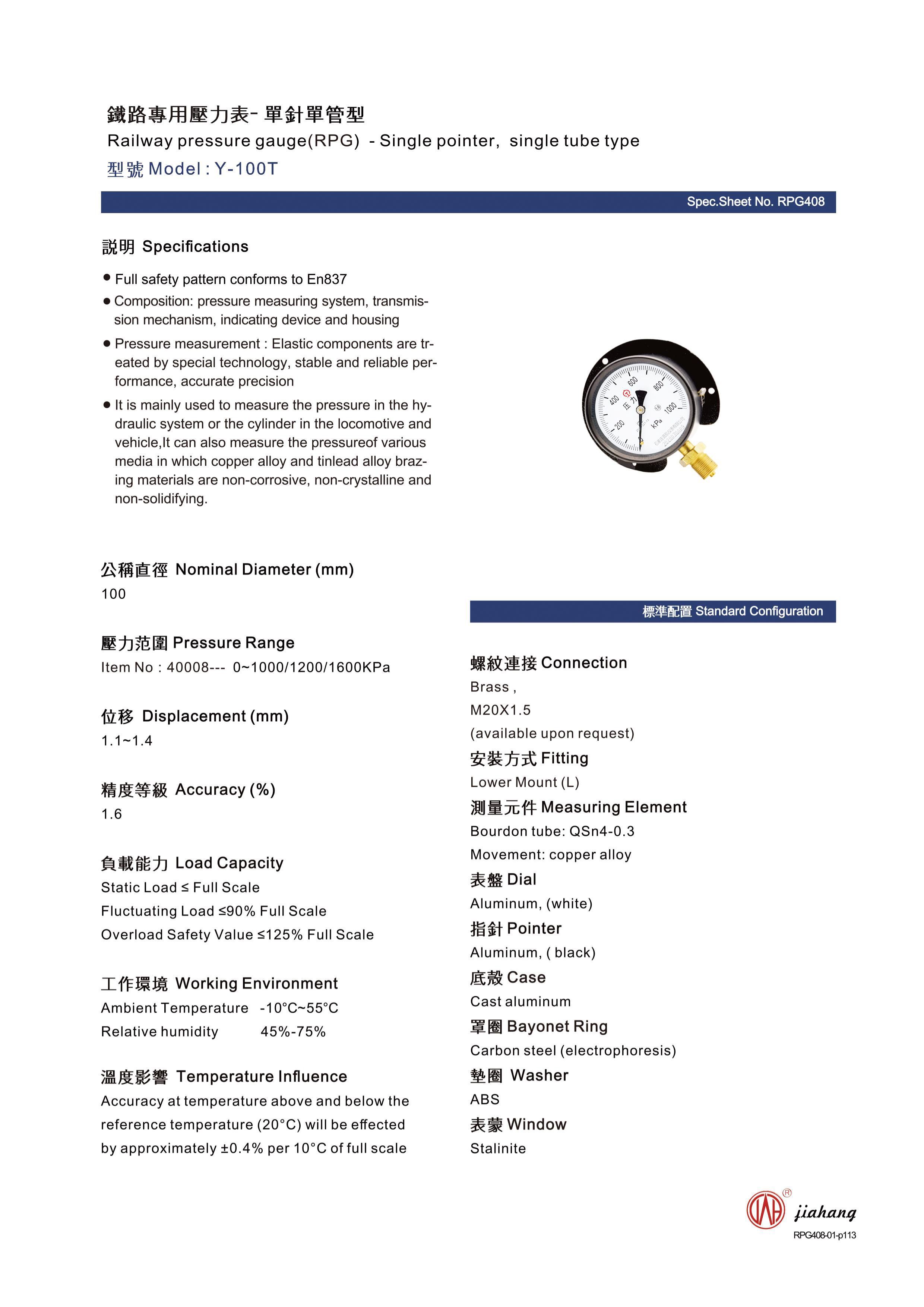
दिसम्बर . 02, 2024 04:25 Back to list
Popular Types of Differential Pressure Gauges Used in Industrial Applications
Understanding Famous Differential Pressure Gauge Types
Differential pressure gauges are essential instruments widely used in various industrial applications to measure the difference in pressure between two points. By accurately monitoring pressure variations, these devices help maintain optimal operational conditions, ensure safety, and improve overall system efficiency. This article discusses some of the most famous types of differential pressure gauges and their applications.
Mechanical Differential Pressure Gauges
One of the most traditional types of differential pressure gauges is the mechanical gauge. These gauges utilize mechanical components such as diaphragms, bellows, or capsules to translate pressure differences into a readable format. The most common types of mechanical differential pressure gauges include Bourdon tube gauges and diaphragm-type gauges.
1. Bourdon Tube Gauges This type of gauge uses a curved, hollow tube that straightens under pressure. The amount of straightening is proportional to the pressure difference and is converted into a rotational movement that drives a needle on a dial. Bourdon tube gauges are known for their durability and accuracy, making them suitable for a variety of applications, from HVAC systems to industrial processes.
2. Diaphragm Gauges These devices utilize a flexible diaphragm that moves in response to pressure changes. The movement is then transferred to a needle indicator. Diaphragm gauges are advantageous for measuring low differential pressures and are commonly used in applications such as filtration monitoring, where they can detect small pressure changes across filter membranes.
Electronic Differential Pressure Gauges
As technology has advanced, electronic differential pressure gauges have gained popularity due to their high accuracy and ease of use. These devices often employ pressure sensors and digital displays to provide real-time readings, which can be more easily interpreted than traditional mechanical gauges.
famous differential pressure gauge type

1. Capacitive Pressure Sensors These sensors measure the change in capacitance caused by the movement of a diaphragm in response to pressure changes. They are known for their high sensitivity and can measure very small pressure differentials, making them ideal for laboratory environments and sensitive industrial applications.
2. Piezoelectric Sensors Utilizing materials that generate an electrical charge in response to mechanical stress, piezoelectric sensors offer real-time performance and high-frequency response. They are commonly used in applications where rapid pressure changes occur, such as in the oil and gas industry and in various aerospace applications.
Applications of Differential Pressure Gauges
Differential pressure gauges are utilized across numerous sectors, including
- HVAC Systems Monitoring airflow and filter conditions ensures efficient heating and cooling. - Pharmaceuticals Maintaining sterile environments requires precise pressure level monitoring, especially in cleanrooms and containment systems. - Oil and Gas In this sector, differential pressure gauges are essential for monitoring fluid levels, analyzing flow rates, and identifying blockages in pipelines. - Water Treatment They help manage filtration systems, ensuring optimal operation by detecting pressure drops that might indicate clogs.
Conclusion
Overall, differential pressure gauges play a vital role in various applications that require precise monitoring of pressure differentials. Whether employing traditional mechanical designs or modern electronic systems, these gauges help industries operate efficiently and safely. Recognizing the specific needs of your application will guide the selection of the appropriate gauge type, ensuring optimal performance and reliability in pressure measurement. As technology continues to evolve, the future of differential pressure measurement promises even greater accuracy and ease of use, further enhancing industrial processes worldwide.
-
High-Precision 5 Valve Manifold Differential Pressure Gauge Suppliers
NewsApr.29,2025
-
High-Precision Diaphragm Vacuum Pressure Gauges Manufacturers & Quotes
NewsApr.29,2025
-
Omega Differential Pressure Gauges High Accuracy & Durability
NewsApr.28,2025
-
Low Pressure Differential Pressure Gauges Precision Solutions & Quotes
NewsApr.28,2025
-
Digital Diaphragm Pressure Gaauge Precision Measurement & OEM Quotes
NewsApr.28,2025
-
Differential Pressure Gauge China Price High-Accuracy & Best Quotes
NewsApr.28,2025
